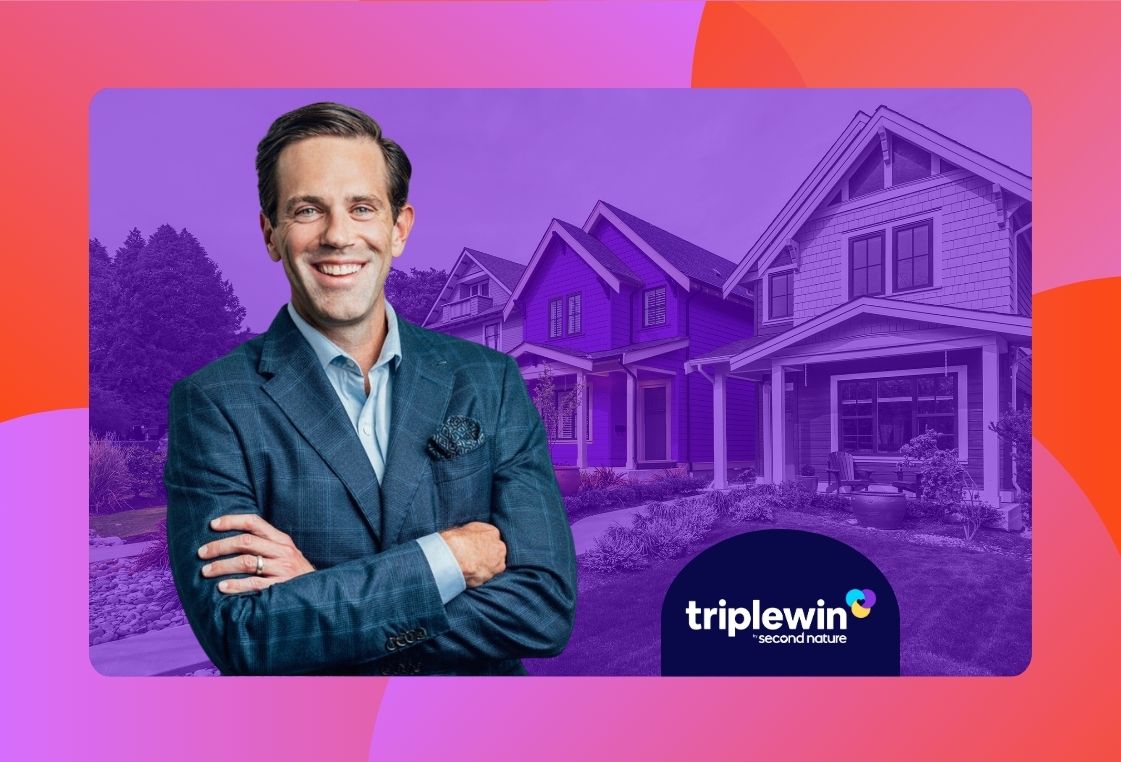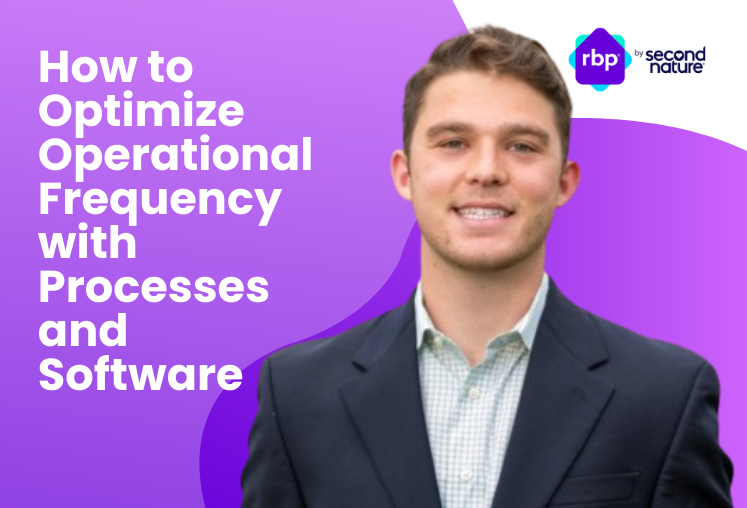It’s not always so easy to build a property management team, and property management hiring tips can be hard to come by. Professional property management is a complex industry with endless responsibilities, nuanced roles, and lots of stakeholders’ priorities to balance. Putting together a dream team – the kind of team that just makes things work, delivers happy residents, and makes workflows feel seamless – it’s hard!
So, we sat down with an expert in just this subject. He’s perfected the art of finding and hiring the right people – the kind of people who can become your property management dream team. An organization is its people, and few companies in the property management industry have internalized this idea more than Evernest.
Whitaker sat down with Second Nature to talk through some of the key things he wants in an employee and how he goes about identifying which candidates have them and which do not.
Ready to hire the best property management team? Let’s dive into Whitaker’s top property management hiring tips.
Meet the Expert: Matthew Whitaker, CEO of Evernest
Matthew Whitaker has developed and refined his hiring process over years of experience in real estate as a property management firm CEO. Evernest is a nationwide SFR company based out of Birmingham, Alabama. Evernest manages around 6,000 doors and continues to scale its business and grow its team at an impressive rate. CEO and founder Matthew Whitaker has been constantly adjusting and reevaluating his hiring process, and it has resulted in one of the most comprehensive talent acquisition procedures in the property management game.

1. Hire Based On Characteristics Over “Qualifications”
Whitaker’s biggest insight, which he’s developed over years in the property management industry, is that there is a lot more to hiring the right people than simply hiring qualified people.
The concept of hiring the most qualified candidate seems like it’s pretty straightforward. But if you start to pull it apart, many of us have hired candidates who seem “qualified” on paper but who end up being a poor fit with the company.
“Who you are matters almost as much as what you’ve done,” Whitaker says. “And as employees rise up through your business, you need to be confident you’ve hired someone who is bought in and is wired for the challenges that come with that.”
Whitaker says their investment in identifying personal characteristics has helped separate their best candidates from the rest of the pack. Be clear with property management recruiters about all the characteristics you’re looking for.
2. Define What a Qualified Candidate Looks Like for You
Evernest hires with a well-rounded definition of “most qualified” – with defined characteristics and experiences they’re looking for. Those descriptions might not be the first things you think of, but it’s helped them with resident retention and growth.
For example, instead of just seeking candidates with “property management experience,” they’re looking for candidates who can handle failure well, who have shown resilience, and who match their company culture. (More on each of those later!)
As a heavily scaled company, Whitaker recognizes that you’re not going to hit on 100% of hires, but going a little deeper than just career experience can up that number as much as reasonably possible.
Clearly defining your ideal candidate can help with referrals, as well, since you can describe to others who you’re looking for.
3. Develop Interview Questions that Reveal Important Traits
The next step is to outline interview questions in your screening process that can identify the qualifications and characteristics you defined in Step 1.
What does that type of person look like? What kind of life experience would they have that built their skills? How have they exhibited the traits that you need in the past? Give them a scenario they might experience while on your team and ask how they would respond.
Carefully evaluate if their responses align with the candidate profile you created.
4. Look For Resilient People
Resiliency is the trait that really stands out to Whitaker for the property management space. After all, single-family property management, in particular, requires people who can stick with it when things get tough.
SFR property management is tricky because properties are spread out over larger regions, residents may have very diverse needs, and the properties themselves may have very diverse problems or requirements.
Evernest always looks to hire resilient people who can handle the ups and downs and surprises of the job. Look for any red flags of people who aren’t willing to go the extra mile.
Whitaker is adamant that resilience is among the most important traits a property manager can have and a great indicator of their potential success in the company.
“One of the things about a property manager is the fact that all you do is deal in the world of problems,” Whitaker says. “If you didn’t have problems, there wouldn't be a role for property managers. So they have to get used to dealing with problems all day and being able to bounce from problem to problem.”
5. Consider Candidates’ Personal Experiences, Even Beyond Real Estate
Whitaker says that resiliency is legitimately a skill you can identify in the interview process and one that you can design interview questions around.
While it may be challenging to uncover in a conversational setting, Whitaker likes to work through the personal experience of a candidate.
The key is asking the right questions. He asks about potential major life events that have challenged their resolve, which he believes can forge resiliency in a person.
“Sometimes [people who have had major life events] make the best team members because they realize that things aren’t unicorns and rainbows,” Whitaker says.

6. Find Out How They Deal With Failure
Another key part of the interview process – and identifying resilient people – is to find out how they’ve historically dealt with failure in their life.
Whitaker believes that someone who has dealt with adversity and failures and come out the other side is automatically going to be better suited to rental property management.
He says, “Whether it’s a huge disappointment they’ve had, a business failure, or a failure in maybe a job, [those experiences] sometimes turn them into somebody that’s very resilient. Some of our best team members actually meet that profile, and I’ve thought that for a long time.”
7. Use a Culture Index to Find a Fit for Your Team
Whitaker and Evernest have proven how important cultural fit can be in such a demanding industry. They use a tool called the Culture Index to test for traits like resiliency, and Whitaker says the tool has really gone a long way for Evernest and the success rate of its hiring process.
With Evernest hiring at scale, Whitaker believes it has helped them get the right people in the right seats at a higher rate, which results in losing fewer people out the back door.
“We buy into the idea that Culture Index can help us identify someone’s unique personality or wiring and that. As a result, they have more success when they are put into the right positions on the team,” Whitaker says.
Culture Index is a data-driven personality testing tool and the weapon of choice for Evernest. It’s part of their refined hiring process that they refer to as “The Grinder,” which features four interviews, the third of which assesses cultural fit. It’s one of the keys to finding the right property manager.
8. Use a Personality-Testing Tool
The Culture Index is just one example of hiring procedures that help to identify personality traits. Companies can use any kind of personality-testing tool to ensure not just that someone is a culture fit but that they’re being hired for the right role on the team.
Whitaker shares:
One of our biggest "aha" moments around personality and natural wiring is when we moved a team member out of accounting here in Alabama and moved him to Little Rock to run our market there.
This guy was an excellent operator in Birmingham. He had all the "i's" dotted and "t's" crossed. No stone unturned. When he moved to Little Rock, we expected him to grow the business. We kept waiting and waiting on it to happen, but it never did. But he was still dang good at executing.
Later, when we profiled him, we learned that he is a "Craftsman," which basically means he is a detail-oriented, highly introverted person. So of course he wasn’t out there growing the business. We later moved a "Trailblazer" into the role, which is a highly relational, highly autonomous person, and she KILLED it. She grew the business and it almost doubled in size. The Craftsman came back to Birmingham to run our accounting department and has been incredibly successful.
He continues: “Since we’ve gotten into personality profiling, we’ve certainly gotten a lot more intentional about putting the right people in the right places, and I feel like we’ve been a lot more successful doing that.”
Failing to invest in a more refined hiring process that features components such as personality testing is cited by Whitaker as one of the mistakes he made early on that other PMs have the opportunity to avoid.
9. Be Smart About Promotions
Whitaker notes that early on, a less refined and consistent approach opened Evernest up to being a victim of the Peter Principle.
The Peter Principle is the all-too-common practice of promoting employees into jobs they aren’t cut out for – based on their success in their previous role.
“We would use our hiring process to hire middle-level and upper-level management,” Whitaker says. “But then when we would go to hire frontline people, we would just basically skip through the process and hire people. These are the people that are going to move up into the middle management, so not being consistent at the frontline level led to people getting into the company that probably should not have been there.”
From the very start, you need to think about hiring people you can eventually promote.
10. Don’t Assume You Can Hire from Multi-Family Property Management
Whitaker says that perhaps the biggest hiring mistake he sees in single-family rental management is poorly-vetted cross-hiring between property management industries, from residential to commercial properties, or SFR and MFR.
He specifically points to single-family homes and property management companies hiring multi-family managers who are unprepared for the transition. And it’s a much tougher transition than it may seem, with differences in property owners, property types, maintenance issues, rent collection practices, property management services, etc.
“The skillset doesn’t easily translate because a full-time multifamily manager has been working on-site at a property,” says Whitaker.
The communication and logistical demands of single-family are quite a bit different than multifamily complexes, where every issue that arises is right in front of you.
“When you add multiple real estate investments and then the logistics of single-family, it becomes a much more complicated business,” says Whitaker. “If you’re going to pull from the multifamily industry, you’re going to have to make sure that you’re hiring some of the best and brightest from that industry because, again, dealing with 300 homes and 50 investors is way more complicated than a 300-unit apartment community all together with one investor.”
-2.jpg)
That doesn’t mean that cross-hiring is impossible, and Whitaker clarifies that Evernest has done so successfully. But the bottom line is that a diligent and robust hiring approach like Evernest’s is important to identify whether a person is up to the transition.
Final Thoughts
Building a good property management team is a complex process, but it doesn’t have to be overwhelming. The key to creating your dream team is to outline a robust hiring process and know exactly what makes a candidate successful in SFR property management.
At Second Nature, we work with thousands of residential property managers around the country and have helped ensure PMCs have the tools they need to retain their best talent. Get more insights like these from Matt by listening to our Triple Win Podcast, or check out more from our blog.
Topics:



